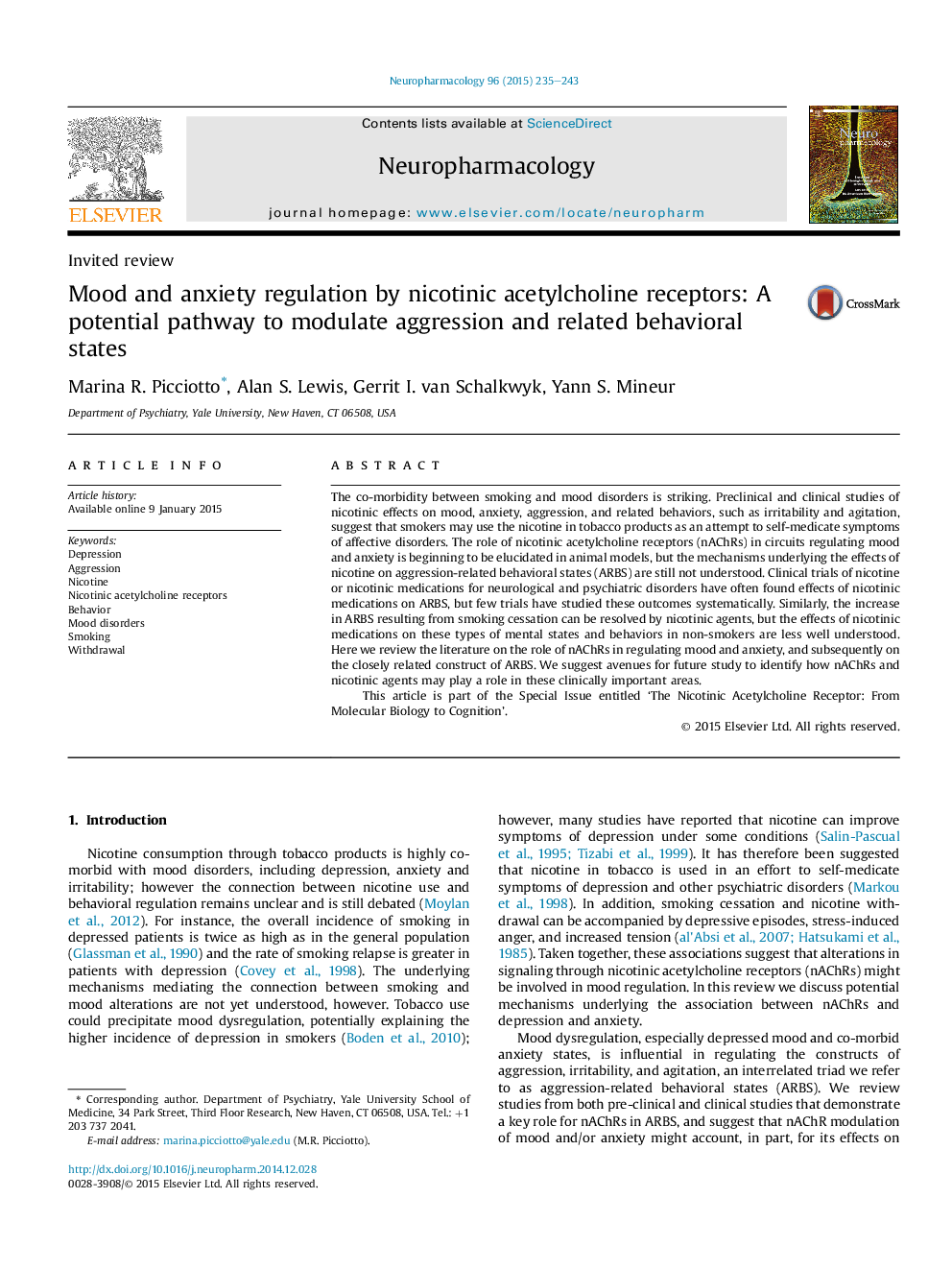| Article ID | Journal | Published Year | Pages | File Type |
|---|---|---|---|---|
| 2493159 | Neuropharmacology | 2015 | 9 Pages |
•There is high co-morbidity between smoking and mood disorders.•Clinical trials have shown effects of nicotine on aggression-related behaviors.•Few trials of nicotine study aggression-related outcomes systematically.•Further studies nicotine and nAChR effects on aggression are necessary.
The co-morbidity between smoking and mood disorders is striking. Preclinical and clinical studies of nicotinic effects on mood, anxiety, aggression, and related behaviors, such as irritability and agitation, suggest that smokers may use the nicotine in tobacco products as an attempt to self-medicate symptoms of affective disorders. The role of nicotinic acetylcholine receptors (nAChRs) in circuits regulating mood and anxiety is beginning to be elucidated in animal models, but the mechanisms underlying the effects of nicotine on aggression-related behavioral states (ARBS) are still not understood. Clinical trials of nicotine or nicotinic medications for neurological and psychiatric disorders have often found effects of nicotinic medications on ARBS, but few trials have studied these outcomes systematically. Similarly, the increase in ARBS resulting from smoking cessation can be resolved by nicotinic agents, but the effects of nicotinic medications on these types of mental states and behaviors in non-smokers are less well understo
